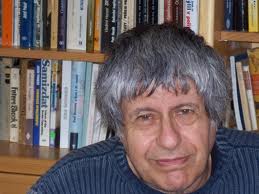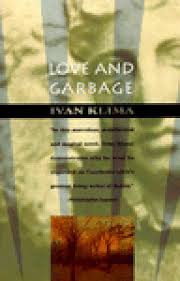 So many writers and artists have had to leave their country for political reasons. In his wonderful, strange novel, Love and Garbage, the Czech writer, Ivan Klima (translated by Ewald Osers) articulates the problems of exile succinctly. He is at a party at a university in the United States:
So many writers and artists have had to leave their country for political reasons. In his wonderful, strange novel, Love and Garbage, the Czech writer, Ivan Klima (translated by Ewald Osers) articulates the problems of exile succinctly. He is at a party at a university in the United States:
“…they all turned out to be pleasant to me and full of smiles as Americans are, and with varying degrees of urgency they asked me to explain what on earth possessed me to want to leave their free and wealthy country to return home, to a poor and unfree country, where they’d probably lock me up or send me to Siberia. I tried to be equally pleasant. I conjured up some kind of patriotism, some kind of mission, until I hit on a convincing explanation. I said that back home people knew me. Even if I had to sweep up garbage in the streets I would be for them what I was, what I wanted to be to the exclusion of anything else, a writer, whereas here, even if I could drive around in my little Ford, I would always be just one of those immigrants on whom a great country had taken pity. These were my boastful words. In reality I wanted to return home, to the place where there were people I was fond of, where I was able to speak fluently, to listen to my native language.”
 Yet his return is a kind of exile, too, as his life is restricted by the Soviet regime, and his works only published abroad: “I had been living in a storage kind of exile for the previous ten years, hemmed in by prohibitions and guarded sometimes by visible, sometimes by invisible, and sometimes only by imaged watchers. I was not allowed to enter into life except as a guest, as a visitor, or as a day-wage laborer in selected jobs.”
Yet his return is a kind of exile, too, as his life is restricted by the Soviet regime, and his works only published abroad: “I had been living in a storage kind of exile for the previous ten years, hemmed in by prohibitions and guarded sometimes by visible, sometimes by invisible, and sometimes only by imaged watchers. I was not allowed to enter into life except as a guest, as a visitor, or as a day-wage laborer in selected jobs.”
In fact, in the book, he has taken a job as a street sweeper, “a person hardly noticed.” This book, written by an author who survived a childhood in Terezin (or Teresienstadt, the “show” camp I wrote about when we were in Prague) is a melange of memory, philosophy, longing, and vivid description. It’s not light reading, but I was enhanced with it’s fugue like intermixing of themes, something that is hard to pull off.
Here’s his reflection about garbage: “No matter ever vanishes. It can, at most, change its form. Rubbish is immortal, it pervades the air, swells up in water, dissolves, rots, disintegrates, changes into gas, into smoke, into soot, it travels across the world and gradually engulfs it.”
I could quote many passages, but hopefully, you’ll read it yourself.